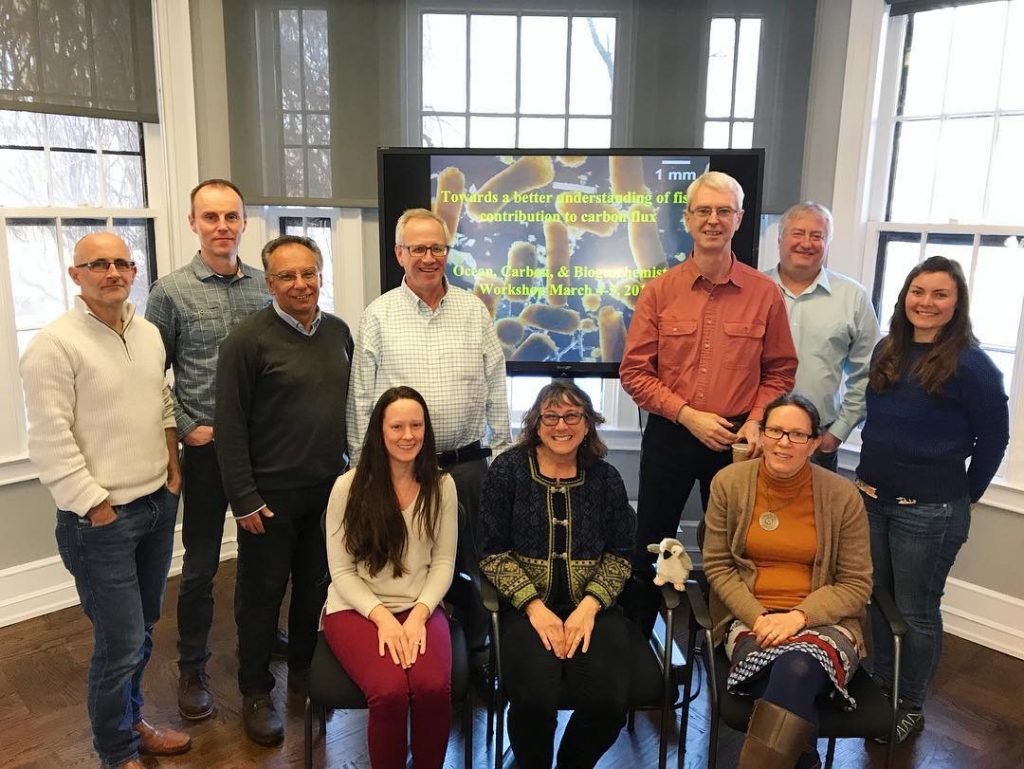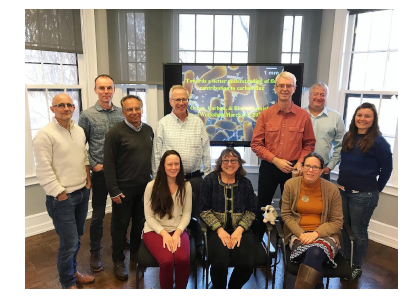This workshop, held March 4-5, 2019 at Rutgers University, was attended by 14 researchers from 11 different institutions. The workshop focused on synthesizing the existing research on fish carbon flux, discussing challenges in measuring fish carbon flux, and determining approaches for estimating fish contribution to carbon flux on variable scales. Presentations and discussions were specifically targeted toward best approaches for determining: fish biomass on regional and global scales, relative amounts of carbon forms produced from fish (i.e., release of sinking fecal pellets, excretion of particulate inorganic carbon and dissolved organic carbon, respiration of carbon dioxide), and carbon flux estimates from fish biomass (i.e., bioenergetics, size-based allometric relationships, stable isotopes). Planned products resulting from this workshop and ongoing working group efforts include two peer-reviewed manuscripts focused on the synthesis of fish carbon flux research and a quantitative analysis of fish carbon flux. Learn more about the working group and view presentations from this workshop on the project’s web page. A full workshop report will be available in the next few months.






